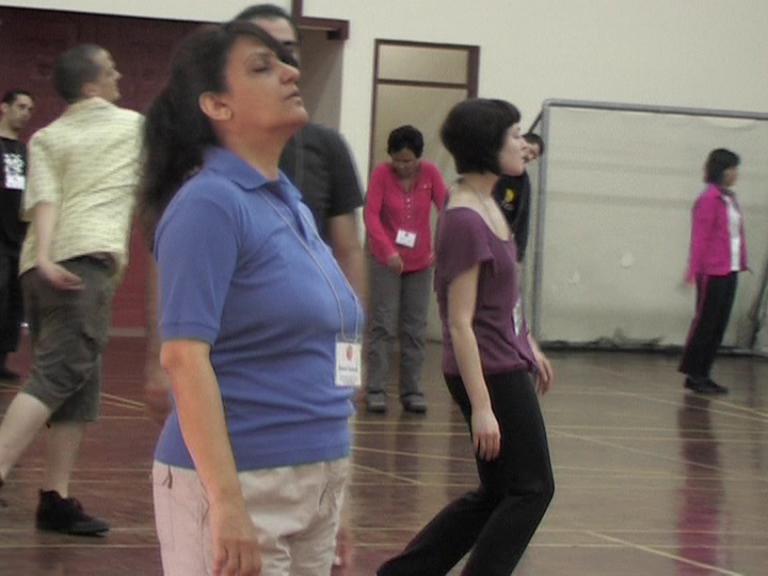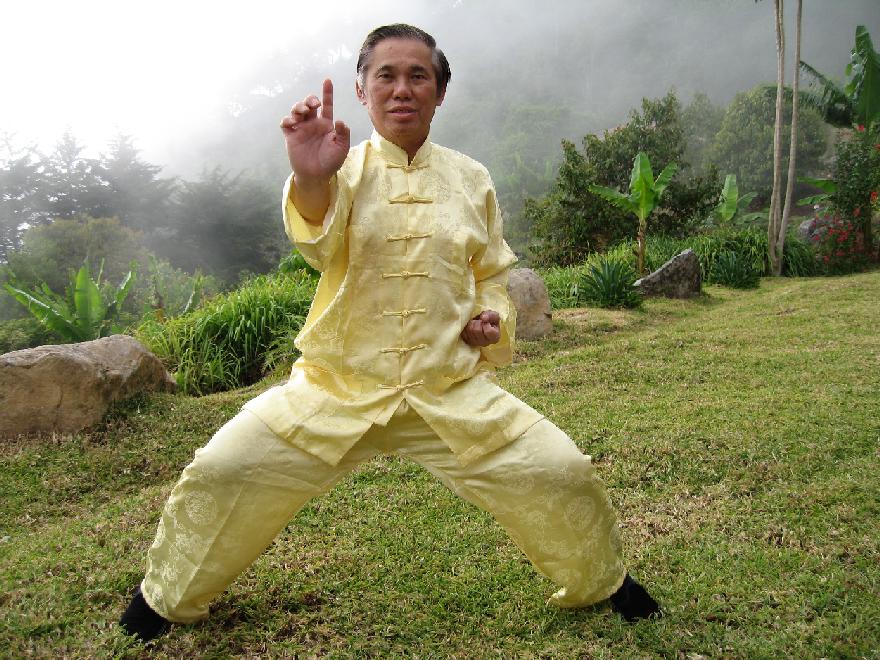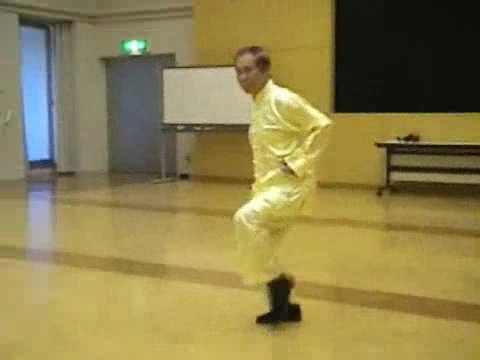SELECTION OF QUESTIONS AND ANSWERS
MARCH 2021 PART 1

When there is energy, there is life
Question 1
It is painful to see people suffer so much from cancer. Currently the cancer patients come once a month for healing sessions, and they practice every day 2 or 3 times for 10 minutes. Do you think they should do more sessions in healing?
— Sifu Trinidad Parreno, Shaolin Wahnam Spain
Answer
Practicing chi kung 2 or 3 times every day for about 10 minutes is quite sufficient. If they like, they may add 1 or 2 more sessions. They must have their practice sessions far apart -- at least 2 or 3 hours apart.
It was in Spain that a student many years ago told me something very memorable. She was dying from cancer, but she told me that she knew she would live if she practiced chi kung. Of course she recovered from cancer.
At first I thought it was very poetic. Much later I knew it was actually factual. Life is a flow of energy, and when we practice chi kung we generate an energy flow. When there is energy, there is life.
Question 2
I am reading a book about custodians angels. And in the book they talk about how powerful demons, through imaginations, try to divert and confuse humans, who are spiritually cultivated, from their good path.
With chi kung practice is it possible to avoid these forms of evil influences?
I have heard you say that chi is like fire or electricity to evil spirits. Does the same apply to powerful demons?
— Paz, Spain
Answer
Chi kung and kungfu practice has given me many wonderful benefits -- more than I can ever imagine. When people at my age are weak and sick, I can jump and roll about happily. I have good health, vitality, longevity, peak performance and spiritual joys.
I have been betrayed a few times in my younger days. I am not sure whether it was the work of powerful demons. But I regarded the betrayals as a test in the making of a master.
There were also many occasions when spirits were rushing away at haunted places or at cemeteries. I had to assure them that I meant no harm.
I feel that lesser spirits move away, but higher spirits come near us. We in Shaolin Wahnam are always protected and guided by divine beings.
I am always lucky, which is "hou wen hei" in Cantonese Chinese or "hou yun qi" in Mandarin Chinese. They are the same in written characters, but pronounced differently. "Hou wen hei" or "hou yun qi" actually means "good circulation of energy". When we practice chi kung and kungfu in Shaolin Wahnam, we will have "hou yun qi" or being lucky.
Different materials will appear differently to different beings because of their different sense organs. What appear to us as chi will appear like fire to lesser spirits and like crystals to high spirits. I am not sure of powerful demons. It depends on how close they are to lesser or higher spirits.
A good way to avoid the influences of demons is to recite a mantra. You can recite "Namo Guan Shi Yin Bodh Satt" three times or many times.
"Namo Guan Shi Yin Bodh Satt" means "Homeage to Bodhisattva Guan Yin". Guan Yin, or Guan Shi Yin, is Buddhist, but Buddhism is actually not a religion. In the words of the Buddha, a Buddhist is one who avoids evil, does good and cultivates the mind.

One-Finger Shooting Zen
Question 3
How can I practice asking better questions, so that I may use this skill to have the fruit of better knowledge and wisdom in my life going forward?
— Alex, USA
Answer
Different people have different methods to ask questions to have better knowledge and wisdom. Experience and involvement are two very powerful methods. In other words, when a person grows older, which means he has more experience, he can ask more intelligent questions. If he is involved in a project, he can ask intelligent questions which can lead to knowledge and wisdom.
We can enlarge our experience by reading. If a university student reads widely, especially on topics that are outside his curriculum, his chance of asking intelligent questions is more. Reading can also lead to asking intelligent questions while involved in a project.
Let us take a project like being involved in a course on One-Finger Shooting Zen. We may ask a question like "Is it necessary that the palm with the index finger upright is bent at 90%?"
The answer is yes. This may lead to another question, or to philosophy. By bending the palm at 90% with the arm, we "lock" the flow of energy so that when the energy is released it is more powerful. We may ask another question, or philosophize. Why is the index finger used? It is because it is linked to the lung meridian, and the lungs are the organ for energy.
Question 4
I was talking to a student about the Single Finger Shooting Zen course that you conducted in St. Petersburg, Fl, in 2016, and he asked what way you taught the skill in that particular course. I demonstrated the training very briefly and with no real force that I could feel. The student said that I had built up a good amount of force.
I'm not sure if the student had noticed the level of my force, and I certainly didn't notice his. In fact, the only people at the course whose internal force was quite obvious to me were you, Sifu, siheng Andrew, and siheng Chun Nga. This made me wonder. Is there a way to tell the level of internal force a person has without them using it and without knocking arms?
Answer
It is common that when you practice One-Finger Shooting Zen or any force-training exercise, you may not realize your force, especially when you practice regularly over a period of time. It is like a child growing. The parents will not notice the child has grown, but someone who has not seen the child for some time will notice the difference. If the increase of force is great, like your sifu, Andrew and Chun Nga, you can see that they are very powerful.
A good way to tell whether a person has a lot of internal force is by appearance. Internal force is stored at the dan tian, or abdominal energy field. A person with a lot of internal force has a "small drum" at his abdomen. It is different from a belly of fat. His eyes sparkle and his arms are rounded. He can speak very loudly without the use of a microphone, but he is usually soft-spoken.
Internal force is not just for combat or sports. It is useful for the intellect. It contributes greatly to good health, vitality, longevity, peak performance and spiritual joys.

Going to the basics
Question 5
I played the videos you posted on a big TV and did my practice in front of it and a mirror to ensure my stances were correct. Afterwards, I felt extremely sick for two days. Could this be emissions from the TV that made me sick or most likely just cleansing?
— Ami, USA
Answer
It is great that you have enjoyed the course and the videos.
If you feel extremely sick after watching the videos, it is unlikely to be emissions from the TV. Probably it is because of cleansing or over-cleansing.
Question 6
The concept of "going back one step" is an important one which I've been reflecting on, as well as my performance during the course. I was thinking of taking my practice back to basics and spending the next 6-12 months just on stances and getting the form and posture as correct as possible before progressing to sequences or other aspects we covered during the course.
Answer
The concept of "going back one step" is very useful, saves a lot of time, and helps many people to progress. This concept was thought out by me after many, many years of experience.
Going back to the basics is very important. Our basics include going into Zen (or Tao) or a chi kung state of mind, the stance and footwork, basic hand forms, regulating breathing, controlling energy flow, exploding force, and our Shaolin (or Taijiquan) combat applications.
Indeed, our Intensive Shaolin Kungfu Course (or Intensive Taijiquan Course) is mainly on the basics. Besides being combat efficient, it gives us good health, vitalility, longevity, peak performance, and spiritual joys.
Many other people would consider our basics advanced. Many people cannot relax, and myriad thoughts come to their mind. They do not know how to enter Zen, or go into a chi kung state of mind. Many other people endure the stances, but our students enjoy the stances as well as the footwork. Many other people are out of breath after 5 minutes, or even real masters after half an hour, but our students have more energy and can spar for at least two hours. We regard these topics as our basics because upon them our practice and daily life depend.
Spending 6-12 months on stances is too long. You can spend only about a month because you already know the finer points. If you are not sure, you can ask me. Other people endure the stances, considering it the most demanding in kungfu. But we enjoy them. In fact we enjoy all our practice. The stances build internal force and mental clarity. Nevertheless after a month, you may practice the stances occasionally to refresh them. You should practice Golden Bridge. Remember also to practice your Art of Flexibility.

Don't worry, don't intellectualize, and enjoy yourself
Question 7
I've been revisiting my aims and objectives for why I'm practicing kungfu. I feel I am much clearer in this after the course. I've listed them below but am still refining these.
Answer
The aims and objectives you mentioned in your previous email are very good.
Some of your objectives are aims in our sense. Aims are general and long termed, whereas objectives are specific and short-termed. For example, to have good health is an aim, but to counter a particular kick is an objective.
To increase internal force through perfect form (including basic patterns) in 6 months, and to use internal force and not physical strength, are aims. It is not measurable how much internal force you have, or you use internal force instead of physical strength, but generally you know you have increased your internal force and you use it.
Question 8
You may remember that during the last day of the course I was doing one of the felling techniques with Molly where I fell and hit the back of my head pretty hard on the ground. The next morning my head continued to pound, hurt and fill with bad tingling sensations.
I went to breakfast and joined others from the course. At one point the conversation lead to Brian mentioning the importance of looking at everyday things in our life through the lenses of your 3 key chi kung rules.
At that very moment the words were spoken, I felt the pain in my head drain away like a tub of bath water that was just unblocked. It was that very moment when I experienced a deep understanding at the body and soul level that worry was blocking my healing. And once removed, I felt almost no pain.
Answer
Our three golden rules of practice are wonderful:
- Don't worry
- Don't intellectualize
- Enjoy yourself
Please remember that these golden rules apply to us in Shaolin Wahnam. For other people, the rules do not apply. Most dedicated students of other schools worry and intellectualize, though they also enjoy themselves or they may not practice.
"Enjoying the practice" is a rule great masters made in chi kung and kungfu classics. Dedicated students enjoy their practice, but most other students don't. They endure their practice because they want chi kung and kungfu results.
In chi kung they want to overcome their illness and have good health. But they do not realize that what they practice is merely gentle physical exercise though they call it "chi kung". Gentle physical exercise cannot overcome their illness or give them good health.
In kungfu most other students practice external kungfu forms, or generously exchange blows if they spar. They forget that an important aim of kungfu or any martial art is self-defence. They become unhealthier the more they practice.
"Not to worry" and "not to intellectualize" are included by me over many years of teaching experience. If a person worry or intellectualize, he (or she) cannot enter into a chi kung state of mind, which is a necessary condition to practice chi kung.
Most people worry or intellectualize. Leaving chi kung and kungfu aside, most people worry that what they do may not bring the results they desire, and intellectualize myriad thoughts that do not affect their daily life.
It is important to know that intellectualization is different from intuitive thinking. In Cosmic Shower, for example, we think intuitively of cleansing physically, emotionally, mentally and spiritually.
LINKS
Selected Reading
- Qigong: a Cure for Cancer and Chronic, Degenerative Diseases? A Glabal Interest
- One-Finger Shooting Zen -- the Treasure of Shaolin Wahnam
- History and Philosophy of Five Elemental Fist
- Frequently Asked Questions on Taijiquan
- The International Shaolin Wahnam Family
